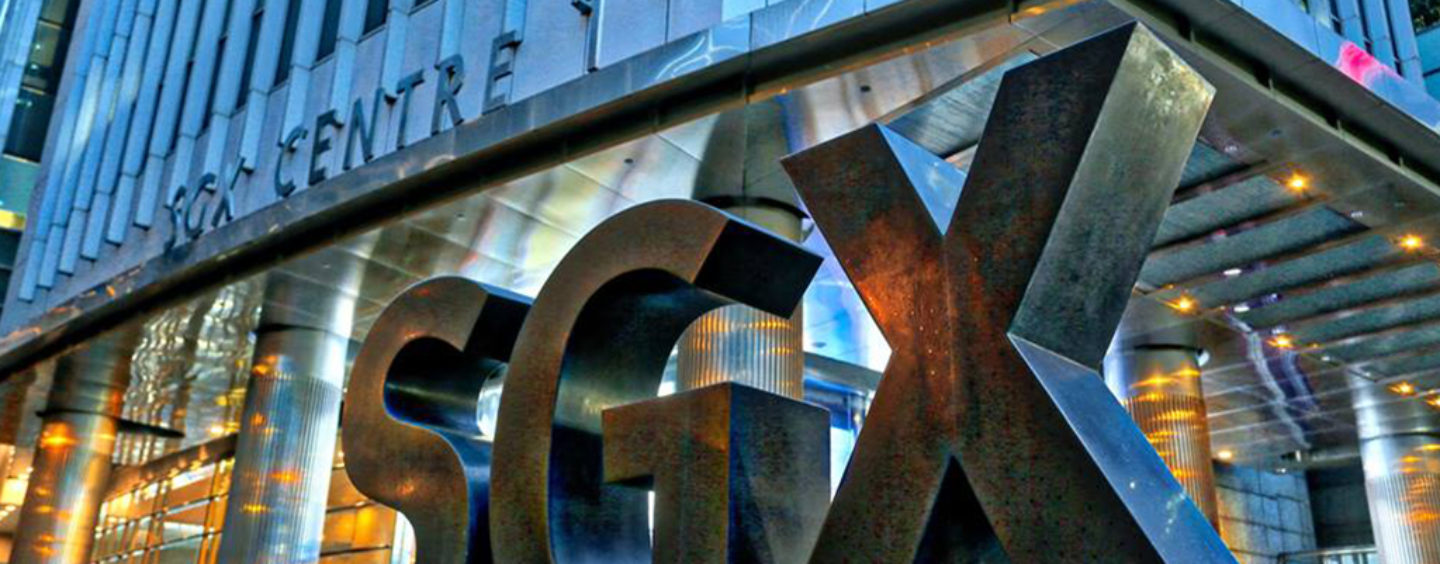
What SGX Expects of Listed Companies Conducting an Initial Coin Offering (ICO)
by Fintech News Singapore November 21, 2018SGX recently provided clarifications for public listed companies seeking to raise ICOs.
An Initial Coin Offering (ICO) is an offer of digital tokens or coins to investors which are paid for either with fiat currencies or other crypto-currencies.
Given that many companies all over the world are conducting ICOs to raise funds, it is to be expected that some issuers listed on Singapore Exchange (SGX) are also considering conducting ICOs to finance business growth.
Questions have therefore arisen as to the regulatory obligations of these listed companies when they offer ICOs.
SGX’s CEO, Tan Boon Gim stated that first off the bat, it is important to make clear that even if an SGX-listed company is the issuer of a digital token, those tokens are not listed on SGX.
Therefore, SGX’s rules would cover only the company and not the tokens nor the holder of the tokens.
Issuers to consult SGX RegCo prior to ICO
ICOs and digital tokens are so new that they are not as well-understood as stocks and bonds. In light of the perceived complexities of ICOs and digital tokens, Singapore Exchange Regulation (SGX RegCo) will require disclosures as follows from listed issuers conducting ICOs. This is to ensure shareholders of the issuer can make informed investment decisions:
1. Any listed issuer that intends to carry out an ICO is expected to consult SGX RegCo beforehand. To facilitate the consultation process, they require the listed issuer to provide legal opinion on the nature of the digital tokens as well as its auditor’s opinion on the ICO’s accounting treatment. The opinions should come from reputable professional firms.
2. SGX retains the right to require additional opinions to be obtained so as to ensure that the relevant statutory requirements are complied with. They will also provide a checklist to the listed issuer on the compliance matters that should be addressed.
3. When the issuer initially announces its ICO, the following disclosures must be included so that shareholders of the issuer are apprised of the fund-raising:
- The rationale for, and risks (including operational, cyber security, manipulation, legal and reputational risks) arising from, the ICO;
- The use of funds raised and key milestones to be achieved in utilising the funds;
- “Know-your-customer” checks to be conducted to address money laundering and terrorist financing risks;
- The accounting and valuation treatments for the ICO;
- The use of existing issuer funds to conduct the ICO, if any;
- The financial impact on the issuer as a result of the token issuance as well as impact of any contingent settlement provisions;
- Any impact on existing shareholders’ rights; and
- Any other information as SGX RegCo thinks necessary.
4. The issuer can also consider holding sharing sessions with shareholders to ensure that they fully understand what an ICO entails for the issuer, thereby enabling shareholders to make informed decisions about the issuer in respect of the ICO.
5. The listed issuer must also come to an agreement with its statutory auditors on the scope of the audit which should provide assurance that the ICO has been properly accounted for in their financial statements, and that associated risks have been adequately addressed and milestones on utilisation of funds raised have been adhered to.
6. Post-ICO, SGX RegCo would expect the listed issuer to keep its shareholders informed of material information, the development of the ICO and digital tokens on a timely basis, as well as the use of ICO proceeds, among other such crypto-currency related disclosures.
Additional measures for ICOs of tokens construed as “securities”
In addition to the above-mentioned SGX regulatory requirements for all ICOs, additional measures may apply depending on whether or not the digital tokens the issuer offers are construed as “securities/ capital markets products” under the Securities and Futures Act (SFA).
Listed issuers should refer to “A Guide to Digital Token Offerings” which sets out how the Monetary Authority of Singapore (MAS) will examine the structure and characteristics of, including the rights attached to, a digital token in determining if the token constitutes a “capital markets product” regulated under the SFA. In summary, MAS is of the view that digital tokens that can be used to pay for goods and services but which do not have additional rights attached to them, may not have similar characteristics as securities. Such digital tokens would not be regulated under the SFA.
However, if the digital tokens are construed as “securities”,
(a) prospectus registration requirements for offers of securities and
(b) licensing issues for dealing in securities would be required under the SFA. Additionally, SGX RegCo may require listed issuers to establish a subsidiary to carry out the ICO of such tokens.
Conclusion
The crypto-currency and ICO landscape is constantly changing and SGX RegCo is closely monitoring developments both on the business and regulatory front.
SGX RegCo is in no position to pass judgment on the commercial benefits or the investment value of ICOs and crypto-currencies. Listed companies planning to issue ICOs must seek legal, financial and other relevant professional advice.
The main concern when it comes to ICOs and digital tokens that SGX RegCo has is how the issuer safeguards its own interest and that of its shareholders when it conducts an ICO. The issuer’s board is ultimately responsible for maintaining a robust system of risk management and internal controls when doing so.
Shareholders are owners of the issuer and have the right to receive clear and accurate material information on a timely basis if an issuer conducts an ICO fund-raising. Here our responsibility as the market regulator will be to ensure relevant disclosures are made and that the information is sufficiently clear and complete for a reasonable investor to make an informed decision.
SGX believes that regulation is only effective if they and stakeholders are in regular ccommunication.
They have also stated they are open to engaging with companies that require more clarity on the matter.







